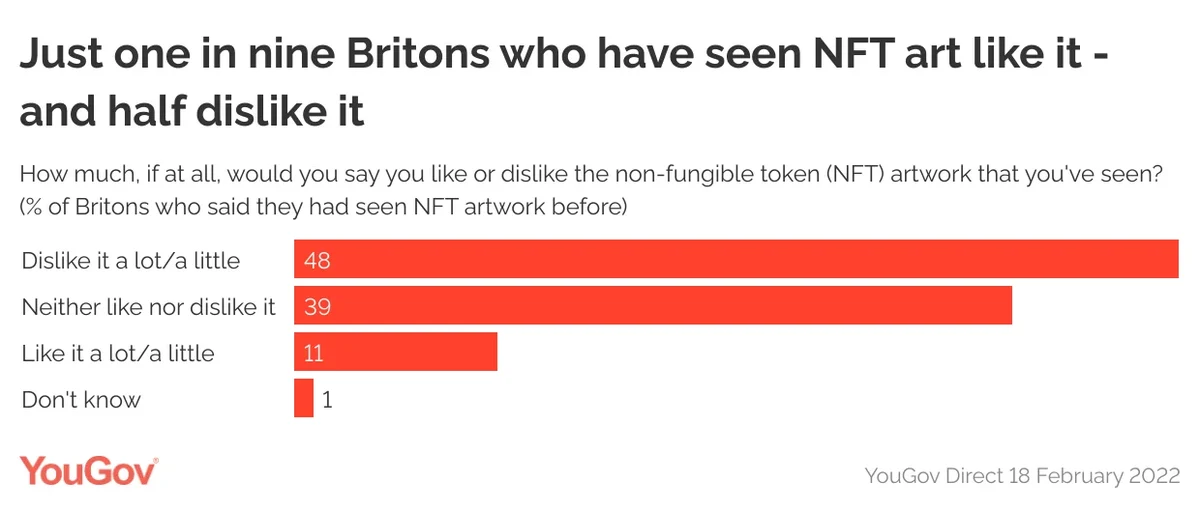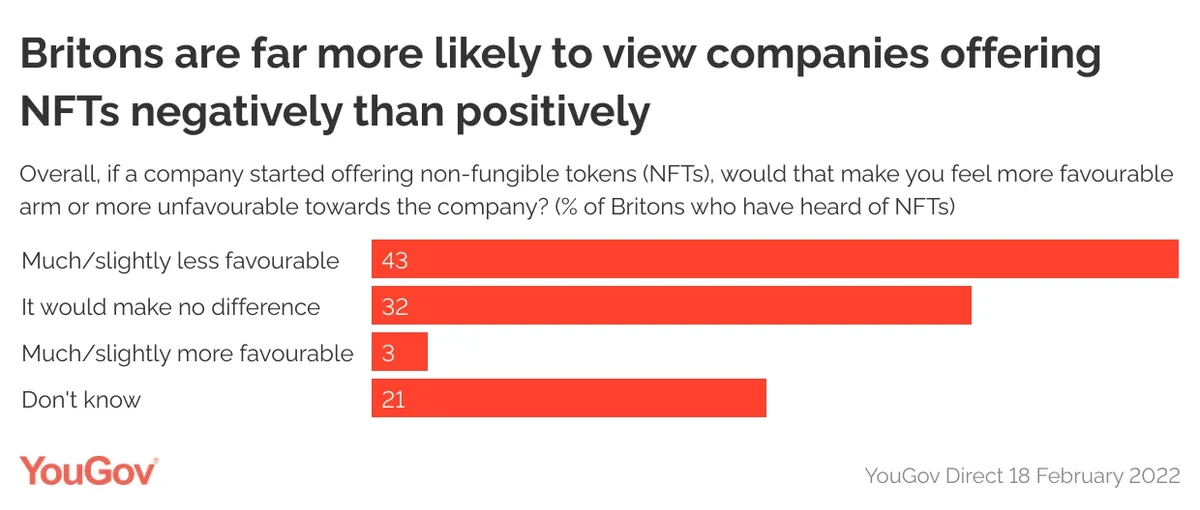
What do Britons think of companies that offer NFTs?
Non-fungible tokens (NFTs) have been called “the future of creative expression” by some – with celebrities such as John Terry and Eminem spending serious money on cartoon apes, and with automakers minting NFTs and healthcare providers exploring the concept. But they have also met with considerable scepticism: The Guardian’s Jonathan Jones said they “serve nothing but money”, while recent attempts to sell the tokens by gaming companies received considerable backlash.
Among the general public, opinion – where it exists – tends to lean more negative. YouGov data shows that while just over a half of Britons have heard of NFTs (56%), a significant chunk haven’t (42%). What’s more, just a quarter (25%) say they’ve heard of them and know what they are.

Those who have heard of NFTs aren’t overwhelmingly fond of some of their most popular forms. Ask this group if they’ve seen NFT artwork such as the Bored Ape collection or CryptoPunks, and two in five (38%) say they have – but one in nine say they like it (11%) and half say they dislike it (48%). Two in five (39%) won’t be drawn on the subject in either direction.
Not only do a plurality dislike these artworks, a majority say they don’t represent good value for money (55%), with just 3% saying they do. In light of big money NFT sales, this may not be too shocking: a piece of pixel art sold for a reported $91.8m in December 2021 – adjust for inflation and this is the kind of money that gets you a van Gogh or a Rothko.
Most of those who have heard of NFTs (55%) are minded to think of them as bad investments, with just 5% saying they are good investments. While the public is not overwhelmingly comprised of art collectors or financial advisers, as an indication of mood it is far from positive.

But beyond whether people like NFTs or dislike them, there are potential consequences for companies that are perceived to be using them for opportunistic ends. Social media organisations have received blowback for integrating NFT functionality, and GSC Game World recently had to reverse-ferret on plans to introduce NFTs into an upcoming video game release following fan outcry. Sports clubs, perhaps chasing extra revenue on top of profits from broadcast deals, have also got in on the action.
But our data shows that only a very small portion of Britons who have heard of NFTs view companies more positively when they start selling them. Over two in five (43%) say they would view a company less favourably if it began selling NFTs, with just 3% saying the opposite and a third (32%) having no opinion either way.
As most people aren’t certain what NFTs are, even if they have heard of them, there is certainly room for companies to communicate about them more effectively if they do choose to offer them. But there is a large contingent who already think they’re bad as investments, don’t like them as artwork, and a detriment, rather than an asset, to any company they might buy from. Organisations offering NFTs may make money off the consumers who purchase these tokens, but they also risk alienating the significant proportion of consumers who do not like or trust them.
YouGov polled 2,000 British adults online on 18 February 2022 between 14:13 and 21:55 BST. The survey was carried out through YouGov Direct. Data is weighted by age, gender, education level, region, and social grade. Results are nationally representative of adults in Great Britain. The margin of error is 2% for the overall sample. Learn more about YouGov Direct.